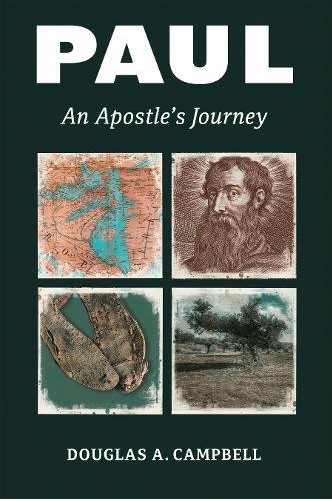I’m convinced Pauline scholars and theologians have made Paul uninteresting. Jesus scholars have taken Jesus studies to the top and have made Jesus totally accessible, invigorating, human and (excuse me) relevant. Far too many Pauline scholars have mined the depths of Paul, have examined the intricacies of atonement and justification and soteriology and history but have failed to make Paul accessible, invigorating, and relevant.
 I’ve seen good church folks as well as students roll their eyes into the back collar listening to yet one more nuanced explanation of Paul’s theology, to yet one more debate about justification, or to yet one more discussion of how eschatology and ethics are tied together in Paul. These are all important issues for the church, but what we need are some books that make Paul sing and sting again.
I’ve seen good church folks as well as students roll their eyes into the back collar listening to yet one more nuanced explanation of Paul’s theology, to yet one more debate about justification, or to yet one more discussion of how eschatology and ethics are tied together in Paul. These are all important issues for the church, but what we need are some books that make Paul sing and sting again.
What do you do with Paul? Is Paul a struggle for you? What role does Paul play in your theology? Is he a major player or a minor player? Why do you think many struggle to make Paul “relevant”?
These same scholars know Paul breathes and lives a theology that was and indeed should be fresh and accessible and invigorating. They know this and they feel this but they also know Paul is dying in too many churches today. Seminary and college professors love Paul; seminary students and some college students love Paul; but getting Paul into the pew has been a challenge. It’s time more concentrated on how Paul’s spiritual vision can reshape the church. It’s more than time.
Rodney Reeves‘ new book, Spirituality according to Paul: Imitating the Apostle of Christ, begins his book with this: “So what?” and that’s the question he gets and feels when he talks about Paul. The question can also be put like this: What difference does Paul make? These are the questions Reeves seeks to answer in this textbookish, theological study of Paul’s vision of the Christian life. Reeves is one of the exceptions today, and he joins folks like Tom Wright, Tim Gombis and Michael Gorman.
And his vision is 100% gospel-shaped. (I don’t mean soterian gospel but the apostolic gospel.) The three parts of his book are: Crucified with Christ, Buried with Christ, and Raised with Christ. Most today want to frame a soteriology that creates ethics or a justification that leads to justice, but Reeves anchors things in the gospel events of Jesus’ life.
Chp 1 is called “Foolish Death: Suffering the loss of all things.” It’s an excellent chapter. What did “cross” mean to the 1st Century Roman empire? It means death, humiliation, shame, humiliation etc. Paul’s own “conversion” was a Christ- and cross-encounter, and the result was a loss of everything. Paul’s old world died; a new day had arrived. He lost it all: family, status, ethnic pride. He gained only that loss.
He didn’t lose in order to gain, he didn’t give up in order to gain; his loss was his gain.
Reeves explores these losses as integral to gospel death: bragging rights, identity (and here he pokes patriotism in the eye), reputation, and he gained a new perspective.
Here it is in a nutshell statement: The cross “marked the end of his life, which was death, and the beginning of his death, which was life” (33). He plumbs Philippians a bit to see that the pattern is humiliation leads to a different kind of exaltation.
He tells a bit of a story at the end: a young girl driving with her father by a church asks “Who lives there?” The father says, “Dead people.”











